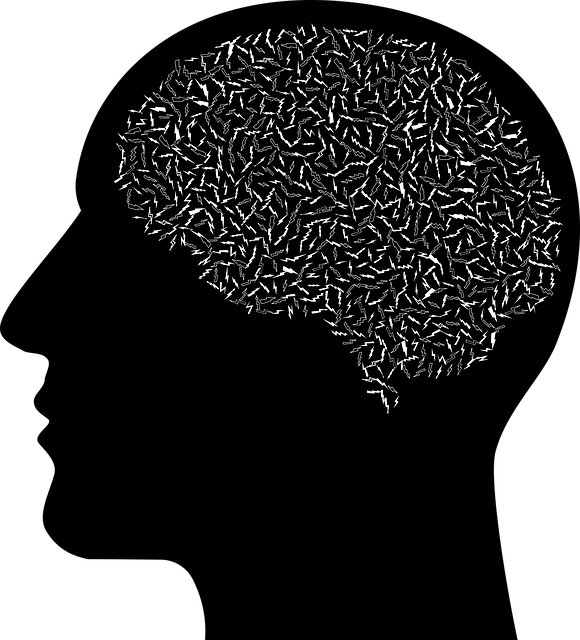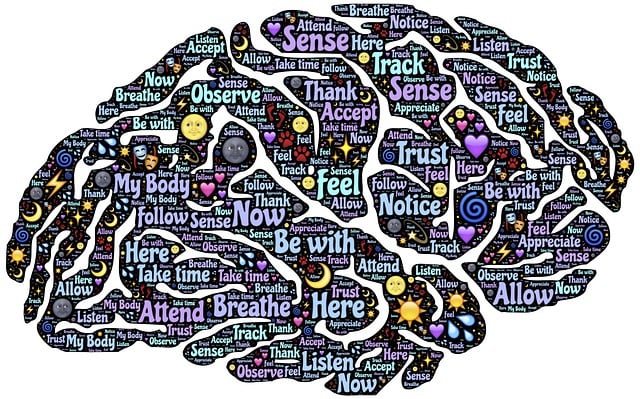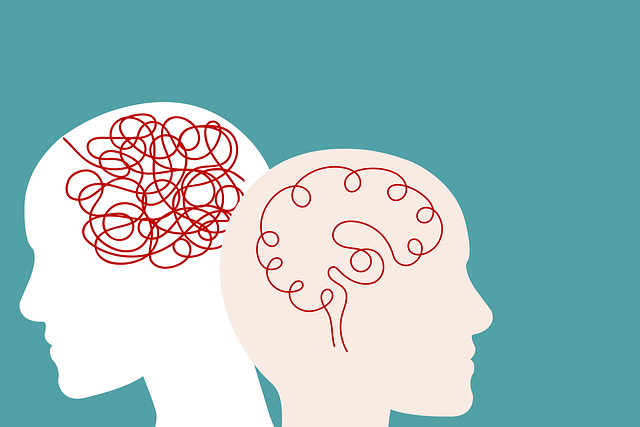Mental wellness journaling, guided by specialized approaches like Lakewood Russian Speaking Therapy (LRST), is an effective method for self-reflection and personal growth, incorporating cultural sensitivity into mental healthcare. Regular journaling practices explore thoughts and emotions, promote positive thinking, and cultivate gratitude. LRST's community outreach program enhances therapeutic outcomes and fosters a sense of belonging. Journaling offers significant advantages for mental and physical well-being, with linked benefits including reduced stress, improved mood, and increased life satisfaction. Setting up a personalized journal with prompts tailored to individual needs, such as mood tracking or gratitude listing, enhances self-awareness and inner strength development. Writing prompts guide self-reflection and emotional awareness, leading to deeper insights and improved mental health. Integrating journaling into daily routines through LRST significantly boosts mental wellness, offering clarity and experience processing over time.
Unwind your mind and embark on a journey of self-discovery with mental wellness journaling. This powerful practice, popularized by the innovative Lakewood Russian Speaking Therapy approach, offers a safe space to explore emotions and thoughts. In this article, we’ll guide you through the process, from understanding the benefits to setting up your ideal journal and writing prompts for uncovering hidden insights. By integrating journaling into your daily routine, you can enhance mental wellness and foster personal growth.
- Understanding Mental Wellness Journaling: The Lakewood Russian Speaking Therapy Approach
- Benefits of Regular Journaling for Mind and Body
- Setting Up Your Journal: Tools and Tips for Effective Recording
- Writing Prompts for Unlocking Emotional Insights
- Integrating Journaling into Daily Routine: A Step-by-Step Guide
Understanding Mental Wellness Journaling: The Lakewood Russian Speaking Therapy Approach

Mental wellness journaling is a powerful tool for self-reflection and personal growth, especially when guided by specialized therapy approaches like the Lakewood Russian Speaking Therapy (LRST). LRST takes a unique perspective, incorporating cultural sensitivity in mental healthcare practice to cater to the specific needs of individuals within their ethnic communities. This approach recognizes that language, culture, and shared experiences play a vital role in one’s mental wellness journey.
By engaging in regular journaling practices, as facilitated by LRST, individuals can explore their thoughts and emotions in a safe and supportive space. The process encourages positive thinking by helping users reflect on personal achievements, identify sources of strength, and cultivate gratitude. Moreover, the community outreach program implementation within LRST provides a sense of belonging, allowing participants to connect with others who share similar experiences. This interconnectedness fosters a sense of validation, enhances therapeutic outcomes, and empowers individuals to take charge of their mental wellness.
Benefits of Regular Journaling for Mind and Body

Regular journaling has been shown to offer profound benefits for both mental and physical well-being. By committing thoughts and emotions to paper, individuals can gain valuable insights into their minds and bodies, fostering a deeper understanding of themselves. This practice acts as a powerful tool for self-reflection, allowing people to process experiences, identify patterns, and work through difficult feelings in a safe, private space. Studies have linked journaling to reduced stress, improved mood, and increased overall life satisfaction.
For those seeking support with mental health concerns, particularly in the context of Lakewood Russian Speaking Therapy, journaling can serve as an effective complementary practice. It encourages individuals to articulate their thoughts and experiences, which can be particularly beneficial during risk assessment for mental health professionals. Engaging in regular mental wellness journaling exercise guidance can enhance self-awareness, promote personal growth, and contribute to a more holistic approach to mental health policy analysis and advocacy.
Setting Up Your Journal: Tools and Tips for Effective Recording

Setting up your journal is a crucial step in establishing a consistent mental wellness practice. It’s time to gather your tools and create a space that encourages reflection and self-care. Consider using a physical notebook or a digital journal app, whichever best suits your preferences and accessibility needs. A quiet, comfortable area free from distractions is ideal for journaling; make it your sanctuary for self-exploration.
Personalize your journal by choosing prompts or questions that resonate with you. Examples include tracking moods, listing gratitudes, or setting intentions. Incorporate writing exercises like stream-of-consciousness writing or drawing to visualize emotions. For those seeking a more structured approach, consider using the Lakewood Russian Speaking Therapy techniques and integrating them into your journal entries. Regularly reviewing and reflecting on your inner thoughts and feelings can foster inner strength development and contribute to the overall growth of mental wellness. Remember, this is a tool for self-awareness, so be authentic and honest in your recordings, allowing yourself the space to explore and express without judgment.
Writing Prompts for Unlocking Emotional Insights

Writing prompts can be a powerful tool to encourage self-reflection and emotional awareness when engaging in mental wellness journaling. These guided questions or statements prompt individuals to explore their thoughts, feelings, and experiences, ultimately leading to deeper insights. For instance, a prompt like “Describe a recent moment of joy and what made it special” encourages individuals to acknowledge positive emotions and identify the sources of happiness in their lives, which is particularly relevant for those seeking support through Lakewood Russian Speaking Therapy.
By incorporating prompts tailored to individual needs, journaling can become an effective practice in enhancing mental health. For example, prompts focusing on gratitude, such as “What are three things you’re grateful for today?” or exploring social connections like “How did you interact with others this week and how did it make you feel?”, can significantly contribute to one’s overall well-being. Moreover, these exercises can be especially beneficial when coupled with Social Skills Training or Mental Health Education Programs Design, offering a holistic approach to personal growth and stress management, which is often emphasized in Stress Management Workshops Organization.
Integrating Journaling into Daily Routine: A Step-by-Step Guide

Integrating Journaling into your daily routine can significantly enhance mental wellness, as evidenced by various self-care practices and communication strategies employed in Lakewood Russian Speaking Therapy. Here’s a simple step-by-step guide to get started. First, allocate a specific time each day for journaling—whether it’s the morning quiet or before bedtime. Choose a location that feels safe and comfortable, free from distractions. Begin by setting an intention: what do you hope to gain from today’s entry? This could be processing emotions, reflecting on experiences, or even planning your day. Then, simply write. Don’t worry about grammar or structure; the goal is to express yourself freely. Over time, you can incorporate different journaling techniques, such as gratitude lists, mood trackers, or creative exercises like drawing and writing. Consistent practice will help establish a self-care routine development for better mental health, allowing you to gain clarity, process experiences, and cultivate a deeper understanding of your thoughts and feelings.
Mental wellness journaling, as guided by the Lakewood Russian Speaking Therapy approach, is a powerful tool for improving both mind and body. By regularly documenting thoughts and emotions, individuals can unlock valuable insights, gain clarity, and enhance overall mental wellness. This article has provided practical tips on setting up your journal, writing prompts to inspire emotional exploration, and strategies for integrating journaling into daily life. Embrace the transformative power of self-reflection through mental wellness journaling, and take a step towards a healthier, more balanced you.














